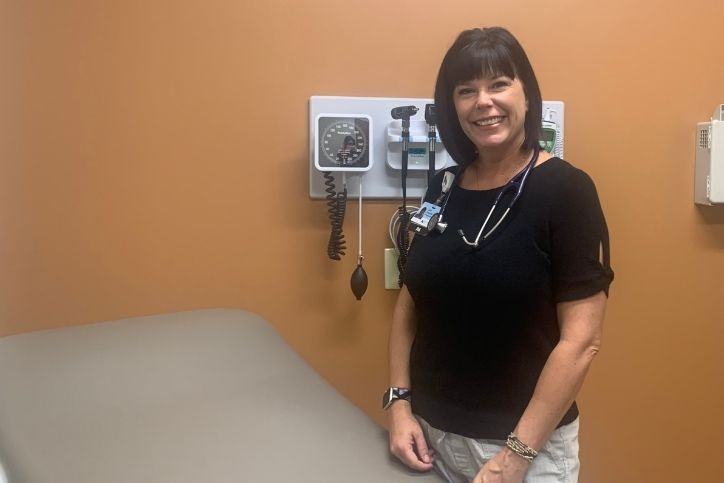Primary Care
Want to learn more about this at Kettering Health?
Physician Assistant Lori Zwickel has her dream job at the Years Ahead Health Center.
After she served as a lab technician in the Air Force, she wanted to treat patients in a more direct way. She returned to school to earn her master’s degree, and she now enjoys serving patients as a physician assistant (PA).
As a PA, Lori serves in a category of caregivers known as advanced practice providers (APP). It’s not a term people hear often or maybe recognize; they’re more familiar with roles like physician assistants or nurse practitioners (NPs).
NPs and PAs (both APPs) occupy unique roles within the world of healthcare, providing the kind of compassionate, competent care patients may assume can come only by way of a medical doctor (MD) or a doctor of osteopathic medicine (DO)—along with offering some other conveniences.
Gems in the world of healthcare
“Advanced practice providers are medical providers with a master’s degree,” said Lori. “They are licensed to diagnose, treat acute illnesses, manage chronic disease, and prescribe medications.”
Like gems with numerous glimmering sides, NPs and APs offer patients multifaceted expertise, resolute compassion, and comprehensive care in a variety of places and spaces.
You might see a PA as your primary care provider, or you may take your child to a pediatric NP. And you may find a PA and NP caring for you in the emergency department.
Qualified to care
Both NPs and PAs bring nuanced expertise and understanding to their professions.
For nurse practitioners, they’ve earned a master’s degree and cultivated specific nursing experience as well. Similarly, physician assistants have earned a master’s degree but are not required to have a medical background, though many do.
Lori, for example, had experience as a lab technician. Becoming a PA was the right route for her because it allowed her to build on her previous experience and education.
NPs and PAs may have different education and backgrounds, but they both offer patients excellent care. In more ways than one, they’re qualified to provide care to patients.
The other advantages of Physician Assistants
Patients encounter many advantages receiving care from an NP or PA. Among them, patients become part of a fully orbed healthcare team and enjoy more scheduling flexibility and timeliness.
For PAs like Lori, they treat patients throughout their healthcare journeys, providing the knowledge to bolster their recovery. And they don’t do it alone. They serve alongside a dedicated team of healthcare professionals, including physicians.
“If I ever need a second opinion, there are plenty of physicians here to help,” said Lori. “If it is a complicated case, I always have a physician to collaborate with.”
This collaborative approach means more care in your corner and more insights into your health. Along with this collaborative approach, patients can often visit with a PA or NP without needing to wait long for an appointment.
“Sometimes it can take longer to get in with an MD or DO,” said Lori. “Seeing an APP might expedite needed care or tests.”
And in a fast-paced world, finding quick, passionate care can make all the difference.










